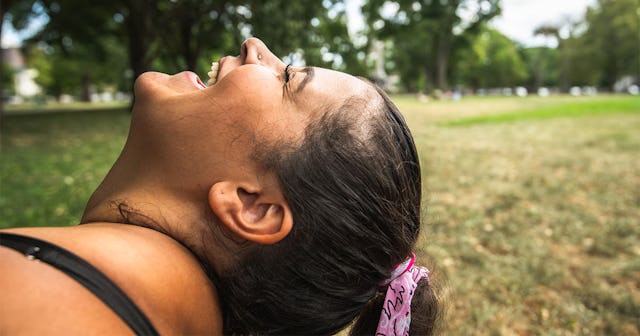Why Sharing Your Most Humiliating Moments Can Be Good For You

The other morning, I literally shat my pants. As in anal leakage. It even got on my sheets! I was so offended — like, asshole, get your shit together, literally. I am anal retentive, not anal expulsive. Please stay on brand!
My children were delighted because they love to see me fail and fail spectacularly. Not like, in a mean way, but in a general “kids are jerks and love to see their parents get taken down a notch” way.
I was both amused and extremely embarrassed. So what did I do? I immediately shared it on all my social media, of course. I even told a Clubhouse room full of strangers about it later that night.
I did this for several reasons — one of which is that I have a somewhat perverse sense of humor. I admit, I find the scatalogical particularly hilarious — even if it is at my own expense. I am willing to sacrifice my dignity at the altar of comedy and pathos, both of which this anal leakage bit served.
Two, there is something freeing and healing about sharing deeply humiliating moments with other people. Not only for myself, but for the people who are on the receiving end — of the story, not the poop. After all, surely out of the 7.8 billion people on this planet, I could not possibly be the only one to accidentally leak poop into my underwear. And for those people, surely my story can be a comfort so that they, too, know that they are not the only people to accidentally leak poop into their underwear. And thus, everyone feels less alone.
I still vividly recall watching comedian Margaret Cho’s special “I’m the One That I Want” as she went on this social commentary tear about dieting culture and how she was so desperate to be thin that she went on a diet of just persimmons. It was all going as planned until one afternoon, she was stuck in LA traffic and had to poop. She couldn’t make it and ended up explosively diarrheaing all over her car.
The moment was so deeply humiliating — can you imagine going on stage and telling thousands of people you literally couldn’t get your shit together — this went on to be an HBO special, by the way — and thus went kaboom splat all over the interior of your vehicle?
Many of us shy away from sharing these embarrassing moments because well, they’re embarrassing. After all, who wants other people to know that they pooped their pants? And whether it’s a physical disaster or a personal story — or even trauma — the more we hide these stories, the more they rot.
According to author and TEDx speaker Brené Brown in her 2013 Oprah Lifeclass, “Shame cannot survive being spoken.” In the video, Oprah added, “That’s why secrets really intensify the shame, and you’re as sick as your secrets because when you’re ashamed, you keep it a secret and that just sort of festers and [the shame] really ends up overwhelming your life.”
Brown continued Oprah’s thought, “Secrecy, silence and judgment: those are the three things shame needs to grow exponentially in our lives.” Brown explained that the antidote to shame is empathy. “[Shame] cannot survive being spoken and being met with empathy,” she said.
Long before I encountered Brown’s words, I have tried to live by this philosophy. I’m not saying you should blast on social media all of your business — healthy boundaries are a gift. It’s just that the more I air out what I really think, what really happened to me, what I really do — even if it’s about incredibly personal and taboo topics like masturbation, estrangement, abuse — the more people also feel freedom to share their stories.
Every time I share — even if it’s about leaky anuses — someone chimes in and thanks me or laughs in commiseration. Sometimes, they email me privately. Other times, they post the articles and tell their own stories with the share. Still other times, they commend me for my bravery.
What people don’t realize is that it’s nothing to do with bravery and everything to do with me hating the feeling of shame. I am greedy for healing, for living a life free of judgment and sickness. And ultimately, that is what I wish for us all.
This article was originally published on